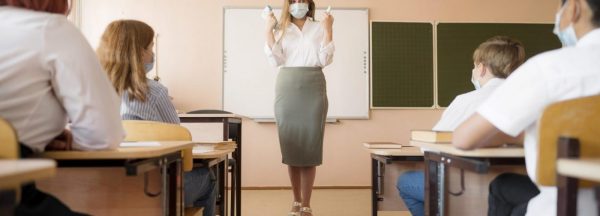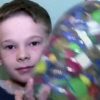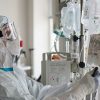 Schools and kindergartens will begin to work according to new sanitary rules starting from January 1, 2021. These rules were approved by Anna Popova, Head of the Rospotrebnadzor. They will operate for the next six years. Pravmir.ru found out what changes await children and parents in the new year.
Schools and kindergartens will begin to work according to new sanitary rules starting from January 1, 2021. These rules were approved by Anna Popova, Head of the Rospotrebnadzor. They will operate for the next six years. Pravmir.ru found out what changes await children and parents in the new year.
Schools will be closer to home
The distance from kindergartens and schools to residential buildings where children live should be no more than 500 meters, 800 meters in an urban area, and up to one kilometer in rural areas.
If the distance is greater, school transport will be organized. In this case the distance cannot exceed 30 kilometers in one direction.
Third shifts are prohibited
In schools that work in two shifts, teaching 1, 5, 9-11 grades and classes for students with disabilities is possible only on the first shift.
The beginning of classes should be no earlier than 8 a.m., classes of the second shift must end no later than 7 p.m.
Three-shift training is prohibited.
First graders will study five days a week.
In the first grade, children will have a five-day school week and will study only on the first shift.
The maximum load for first graders is no more than 4 lessons a day, with 5 lessons including physical training once a week.
In September-October there will be 3 lessons a day, 35 minutes each, November-December – 4 lessons of 35 minutes, January-May – 4 lessons of 40 minutes.
In the middle of the school day, there will be a dynamic recess of at least 40 minutes.
How will the lesson schedule change?
Grades 2–4 will have no more than 5 lessons a day, and 6 lessons once a week (due to physical training).
5-6 grades will have no more than 6 lessons a day.
7-11 grades will have no more than 7 lessons a day.
To avoid overwork during the week, there will be one day with less lessons on Wednesday or Thursday.
How long will the recesses last?
Lessons will last for no more than 45 minutes (excluding 1st graders and compensating classes). The duration of the breaks will be at least 10 minutes, the larger break (after 2 or 3 lessons) will last at least 20 minutes.
Holidays
The duration of the holidays will be at least 7 calendar days.
Exams
During the final certification, it will not allowed to conduct more than one exam a day. The break between exams will be at least 2 calendar days. It will be allowed to conduct exams in subjects of choice every two days.
If the exam lasts 4 hours or more, the children must be fed.
The waiting time for the exam in the classroom should be no more than 30 minutes.
School lunches
Meals should be provided for all students. Children should not eat in more than three shifts, and in more than two shifts in newly built and renovated schools.
If children study for more than 4 hours, they should be provided with hot meals.
Translated by pravmir.com

















